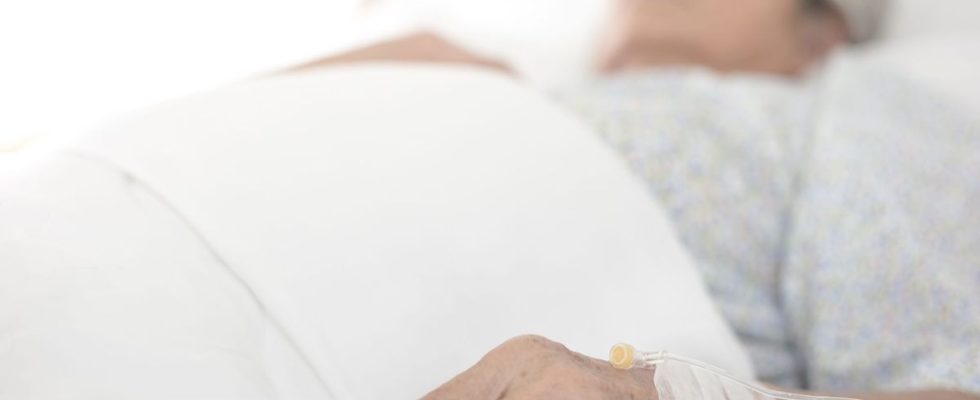Published on
Updated
Reading 3 mins.
In an opinion published on the site of the National Academy of Medicine, it is reported that the body “voted” a text relating to the end of life, during the plenary session which was held on June 27. A vote denounced by Professor Patrice Queneau, member of the ethics committee of the National Academy of Medicine, whose remarks were collected by Doctissimo.
After the conclusions of the Citizens’ Convention on the end of life last spring, it was the opinion of the Elders on the question that was expected. After a plenary session held on June 27, an official opinion from the National Academy of Medicine was published on its website, detailing the body’s official position on end of life.
Euthanasia ruled out, assisted suicide approved
In the document, the National Academy of Medicine therefore rules out the use of euthanasia, but comes out in favor of a right “in exceptional cases” to assisted suicide. At least that’s what the text suggests. Questioned by Doctissimo, Professor Patrice Queneau, member of the ethics committee of the National Academy of Medicine, gives us a completely different story.
A hot topic discussed just before summer
Member of the Ethics Committee of the National Academy of Medicine, the name of Professor Patrice Queneau appears on the first page of the notice entitled “Promoting a dignified and peaceful end of life: Responding to inhuman suffering and protecting the most vulnerable people“published on July 17. If he took part in the plenary session, he regrets that the subject was not the subject of a full session.
“The end of life should have been the subject of a general presentation and discussion during a plenary session of the Academy entirely devoted to this subject, if only to underline the extent of the issue, the importance of palliative care, in particular the major deficits in this field and the need to fully apply the Clayes-Leonetti law, as a priority plan.However, this burning subject was only examined during the last session of June of the Academy (before the cessation of the summer sessions for 2 and a half months). The presentation of the opinion was therefore “stuck” between elections and the presentation of two other reports, followed by three communications and a book presentation“he denounces first.
“I feel a deep malaise, it is an unacceptable passage in force”
Beyond the form, Professor Queneau also wants to “restore the truth”.
“After 20 interventions (including mine), it was proposed by one of us to vote for or against the fact that the text be modified. It was this option – for the modification of the text – which won .
This vote “for” of June 27 has no validity because, carried out in haste and confusion for lack of time – for a societal subject so heavy with consequences! – it actually results from the amalgamation of two very distinct types of votes:
- those in favor of the opinion as presented by Jacques Bringer;
- and those asking for modifications, but who obviously did not “vote for the opinion”.
For Professor Queneau, this vote therefore has “no value”.
A decision awaited by the government
However, the result of this vote seemed to be well and truly expected by the Government, in particular. According to our colleagues from Le Monde, the Minister Delegate in charge of Territorial Organization and Health Professions, Agnès Firmin Le Bodo, became aware of it the next day, June 28, 2023, even before its official publication, and ” delighted” with the result.
For Patrice Queneau, “this opinion was also expected because it serves the interests of the government”. Finally, he recalls that beyond this vote, he was not aware of the modified text before its publication and was not consulted on the said modifications to be made either. He is, however, a permanent member of the ethics committee of the National Academy of Medicine…”I feel a deep malaise, it’s an unacceptable passage in force” he concludes.
